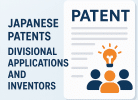On January 17, 2019, the Japanese Patent Attorney’s Association held a press conference in which presenter Seiji Matsuda pointed out the impact of the now-effective modified Trans-Pacific Partnership free trade agreement (often called TPP-11) on intellectual property. The major changes are found in a statute for patent duration extension for applications that underwent unduly long examinations, and a new standard for awarding damages for infringed trademarks (for more on copyright duration and the TPP-11, see another article on the TPP-11 from summer 2018.)
The TPP-11 (members include Australia, Brunei, Canada, Chile, Japan, Malaysia, Mexico, New Zealand, Peru, Singapore, and Vietnam) agreement involves leveling the business field in many areas of economics, including intellectual property. With the TPP-11 agreement going into effect on December 30, 2018, one of the policy changes is that patent applications that are delayed in registration beyond five years from application or three years from the filing of request for examination may be given extended durations (patent term adjustments) in the TPP-11 member countries. This used to apply within Japan only to specific (such as medical) inventions, but now to any examination-delayed application. Matsuda doubts that this change will affect many domestic or international applications filed in Japan, since Japan has such a good examination rate (average in 2017: slightly more than 14 months from request for examination). On the other hand, this may give extended patent term benefits to Japanese and other applicants when they undergo delayed examination in other countries as well, Matsuda thinks.
In addition, Park reports from the same press conference that Japan is introducing a new policy is in order to meet TPP-11 requirements and dramatically speed up closure for trademark infringement cases when the infringing trademark is identical (not merely similar, according to Matsuda) to a registered trademark. The benefit of the change is not in the amount of damages that can be sought by the trademark holder, for the amount is only the cost of registration and maintenance of the trademark (hardly like the damages one might seek in the United States), but that this can be awarded with an injunction against the infringing product(s) immediately, reducing time that the infringing products can be circulated openly.
The institution of patent duration extension means little for most applicants in Japan, but both measures described above indicate the progress Pacific Rim countries are making toward faster resolution of IP issues in this rapidly changing environment.
Sources
Shokuhin Shimbun, “TPP発効で重要性増す知財権 海外での事業展開に影響も [TPP going into effect makes IP rights more valuable; some impact on foreign business],” February 6, 2019.
Park 朴尚洙, “TPP発効による知財への影響は?「国内製造業にとってメリット大きい」 [What is the impact of the TPP upon IP? ‘Benefits to domestic manufacturing are big’],” January 18, 2019.






